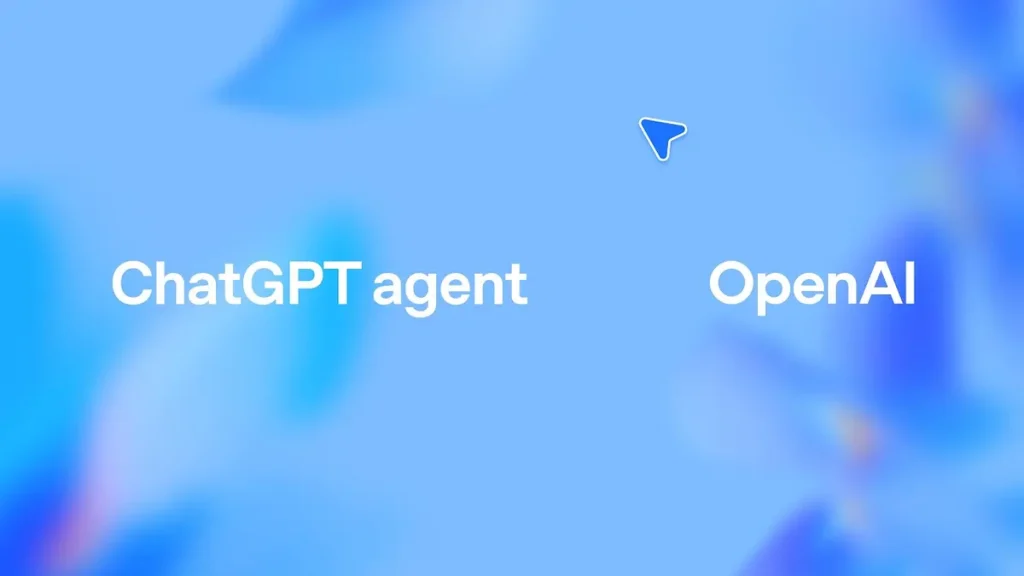What Are ChatGPT Agents?
OpenAI introduced ChatGPT Agent on July 17, 2025, marking a leap forward in AI assistance. Unlike traditional chatbots, these AI agents can act on users’ behalf, performing real-world tasks across websites, apps, and local files via a virtual computer. This unified tool merges the strengths of earlier features—Operator’s browser interaction and Deep Research’s insight generation—into one seamless assistant.
Capabilities That Go Beyond Chat
With ChatGPT Agent, users can delegate comprehensive multi-step tasks, such as:
-
Reviewing Google Calendar and briefing you on client meetings in context of current events
-
Planning and purchasing grocery ingredients for meals like a Japanese breakfast
-
Analyzing competitors and generating polished slide decks or spreadsheets
-
Automating everyday tasks like online shopping, email checks, and terminal-based data analysis
A Verge demo highlighted how the agent managed date-night planning and slide generation—sometimes taking 15–30 minutes but significantly outperforming manual effort.
How ChatGPT Agent Works
Engineered on OpenAI’s latest o3-model, the Agent uses a suite of tools:
-
A visual browser to click, navigate, and log in
-
A text-based browser for efficient research
-
A terminal environment for document generation and scripting
-
API connectors to integrate with platforms like Gmail and Google Drive
-
Proactive permission checkpoints before irreversible tasks
This architecture ensures users maintain control, with safeguards like “Watch Mode” that halts automation on sensitive sites such as banking—requiring manual oversight.
Key Features of ChatGPT Agent
1. Autonomous Task Execution
ChatGPT Agent can independently handle tasks such as:
-
Browsing the web to gather information.
-
Managing calendars by scheduling meetings and sending reminders.
-
Creating presentations and documents.
-
Interacting with applications like Gmail and Google Calendar.
-
Performing data analysis and generating reports.
These capabilities allow users to delegate routine tasks, enhancing productivity and efficiency.
2. Integration with Existing Tools
ChatGPT Agent integrates seamlessly with existing productivity tools, enabling it to:
-
Access and manage emails and calendar events.
-
Create and edit documents using familiar interfaces.
-
Interact with APIs to retrieve and process data.
This integration ensures that users can leverage their current workflows while benefiting from enhanced automation.
3. Advanced Reasoning Capabilities
Powered by OpenAI’s GPT-4o model, ChatGPT Agent exhibits advanced reasoning abilities, enabling it to:
-
Analyze complex datasets and extract meaningful insights.
-
Make informed decisions based on available information.
-
Adapt to new tasks with minimal instruction.
These features make ChatGPT Agent a versatile assistant capable of handling a wide range of tasks.
Availability and Access
-
Currently rolling out to ChatGPT Pro, Plus, and Team subscribers
-
Comes as part of agent mode in the tool menu—no separate install needed
-
An expanded release for Enterprise and Education users is expected later this summer, with EEA rollout still pending
The Rise of AI Agents
The launch positions OpenAI at the forefront of the “AI agent” trend, competing with Google, Amazon, Anthropic, and others building tools designed to reduce human labor. In the fintech world, Klarna’s AI agent automated tasks equivalent to 700 full-time customer service agents.
Financially, business and professional users—who value productivity—are OpenAI’s target, given the need to monetize and distinguish from commodity chat services.
Early Feedback
-
Powerful automations: Users report tasks—from ordering cakes to delivering full business presentations—would have taken far longer manually.
-
Latency tradeoff: Complex workflows can take several minutes to complete, though still dramatically beat manual effort.
-
Safety concerns: OpenAI disabled memory storage in agent mode and implemented safeguards against prompt-based misuse. Bad actors could employ phishing-style tricks to compromise user data.
OpenAI plans to iterate rapidly, expanding functionality, improving accuracy, and refining user control. Upcoming goals include restoring memory capability, broader file-type support, and regional rollout in Europe.
Together with the recently adopted Model Context Protocol (MCP), this signals OpenAI’s intention to standardize and integrate AI agents across platforms, fostering an ecosystem where agents are safe, interoperable, and effective.
ChatGPT Agent brings us closer to AI that truly bridges research and action—not merely answering questions, but executing tasks end-to-end. While it isn’t perfect—speed, accuracy, and security remain works in progress—it marks a significant shift toward thinking agents in everyday computing. For professionals, parents planning weekly meals, or anyone juggling digital responsibilities, it offers a powerful new layer of assistance.




